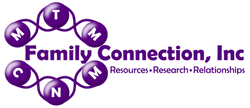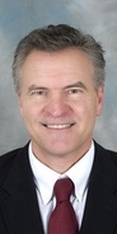
One of our speakers for 2013 was Dr. Martin "Casey" Childers of the University of Washington, Institute of Stem Cell and Regenerative Medicine. Dr. Childers is leading the exceptionally promising research into gene replacement therapy with Labrador retrievers who have MTM. This research is paving the way to human trials in the future. About his work, he says "I am passionate about finding answers for patients with devastating muscle diseases, particularly those with congenital myopathies and Duchenne muscular dystrophy. As a rehabilitation clinical specialist and basic scientist who investigates rare diseases, it is a privilege to help patients and families struggling with extraordinary burdens. Although we do not have many answers yet, efforts are now yielding new hope for our patients. This is an exciting time of discovery in muscle disease research." We are thankful for the opportunity to meet with Dr. Childers again and hear about the latest and greatest in gene replacement therapy and the hope of treating those with Myotubular Myopathy!
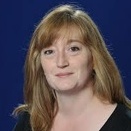
Having done a post-doctorate at the IGBMC, Illkirch, France, where she worked for several years on murine models of myotubular myopathy and was awarded with fellowships from EMBO and Marie Curie Actions, Dr. Anna Buj Bello joined the INSERM (National Institute of Health and Medical Research in France) in 2004 and works at Genethon since 2009. She currently heads one of Genethon’s research teams, as well as a translational program investigating gene therapy for the treatment of myotubular myopathy. How wonderful to have such excellent international collaborators participating in our conference!
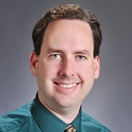
Since completing his postdoctoral research training in the laboratory of Dr. Alan Beggs at Boston Children's Hospital, and moving to the Medical College of Wisconsin September of 2011, Dr. Mike Lawlor has continued to work closely with the Beggs laboratory while establishing clinical and research neuromuscular pathology laboratories. The work performed in his research laboratory at MCW has performed the pathological analyses for a number of preclinical trial studies for animal models of X-linked myotubular myopathy that are currently being performed worldwide, including anti-myostatin therapy, gene therapy, and protein replacement therapy. He has also recently begun evaluating myostatin inhibition in murine models of nemaline myopathy.
In the spring of 2013, Dr. Lawlor’s laboratory became the site of the Congenital Muscle Disease Tissue Repository, which is meant to provide a central place for the donation and distribution of patient tissues, thanks to a generous donation by a collection of non-profit organizations. It is our hope that such a central resource for tissue storage and distribution will improve the pace of research in our field.
In the spring of 2013, Dr. Lawlor’s laboratory became the site of the Congenital Muscle Disease Tissue Repository, which is meant to provide a central place for the donation and distribution of patient tissues, thanks to a generous donation by a collection of non-profit organizations. It is our hope that such a central resource for tissue storage and distribution will improve the pace of research in our field.
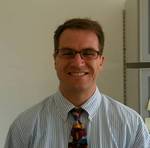
Dr. Jim Dowling is a pediatric neuromuscular specialist and researcher at the University of Michigan. His laboratory is dedicated to learning more about CNM/MTM. The Dowling laboratory uses zebrafish and mouse models of CNM to better understand how and why these diseases occur, identify new genetic causes and develop new therapies. One potential therapy to come out of his lab is a medication called Mestinon. Using CNM animal models, he identified problems with the communication between the nerve and muscle; Mestinon helps to improve this communication which in turn may lessen fatigue and possibly improve muscle movement in patients. In addition to research, Dr. Dowling is also the co-director of the Pediatric Neuromuscular Clinic, a Muscular Dystrophy Association (MDA) sponsored clinic. In this clinic, patients with a variety of nerve and muscle conditions including muscular dystrophies, congenital myopathies, and inherited and acquired neuropathies are evaluated and treated.
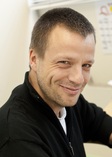
Collaborating with the Dowling Lab Team is Laurent Servais, MD, PhD. Dr. Servais is a child neurologist working in the Institut of Myology, in Paris, France. He is the head of the Clinical Trials and Databases service. Together with Genethon (France), Valerion (US) and Dr. Jim Dowling (University of Michigan), he is preparing a natural history study using innovative methods to longitudinally measure strength and function of patients with XMTM in Europe and in US.
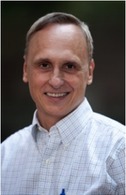
Dr. Barry Byrne's laboratory and research is focused on understand the pathophysiology of inherited cardio-skeletal myopathies and therapeutic strategies using gene therapy. Specifically, his lab has developed novel gene therapies for neuromuscular diseases such as Pompe disease. They have used AAV vectors to achieve sustained correction of the gene deficiency in Pompe disease models, leading to restoration of contractile and metabolic function of striated muscle and motor nerves. Their approach is now being evaluated in a human clinical trial investigating the safety and efficacy of direct gene delivery to the diaphragm. Most exciting for our community, the methodology they have applied to test respiratory motor performance holds promise for quantifying respiratory muscle function in other severe pediatric neuromuscular disorders, including X-linked MTM.
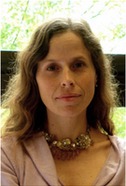
Those of you who attended in 2011 will remember Dr. Barbara Smith, PT, PhD, who served as a consultant to Dr. Childers with regard to pulmonary testing in ventilated patients. She has continued studying the effects of respiratory motor training, in order to facilitate recovery for patients with neuromuscular disease and impaired breathing. Her work includes respiratory muscle testing in ventilator-dependent children with Pompe disease as part of a clinical trial of intramuscular gene therapy to the diaphragm. Dr. Smith has additional experience with XLMTM, nemaline myopathy, and Duchenne muscular dystrophy, all of which is most valuable for our community.
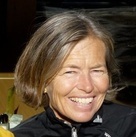
You may have seen the recent announcement in the MDA's Quest magazine about the "MTM Phone-Based 'Event' Study." This is a study that involves monthly interviews over the period of a year to gain deeper insight into the changes in respiratory and motor function of those with MTM so that we can improve MTM care and help better design future clinical trials. The study is co-led by researchers at the CMDIR (Congenital Muscle Disease International Registry) and at researchers at the University of Michigan. The study coordinator is Sabine de Chastonay, PhD. This is exciting news for those of us attending this year's conference since Sabine will be there in person to explain the details of the study more fully and to meet with you and your families!
For families who have not yet received genetic confirmation of the MTM diagnosis, Sabine is also coordinating a genetic testing study at no cost to the affected individual! Click here for more information.
For families who have not yet received genetic confirmation of the MTM diagnosis, Sabine is also coordinating a genetic testing study at no cost to the affected individual! Click here for more information.
